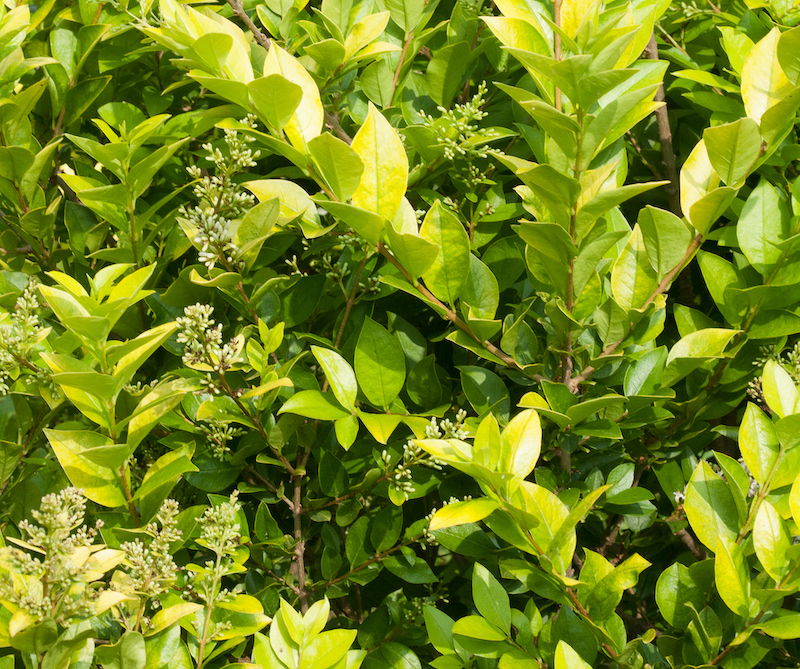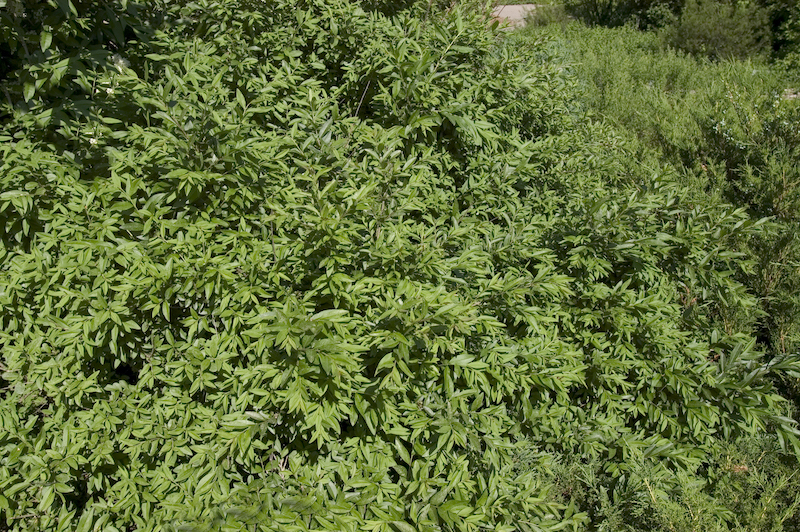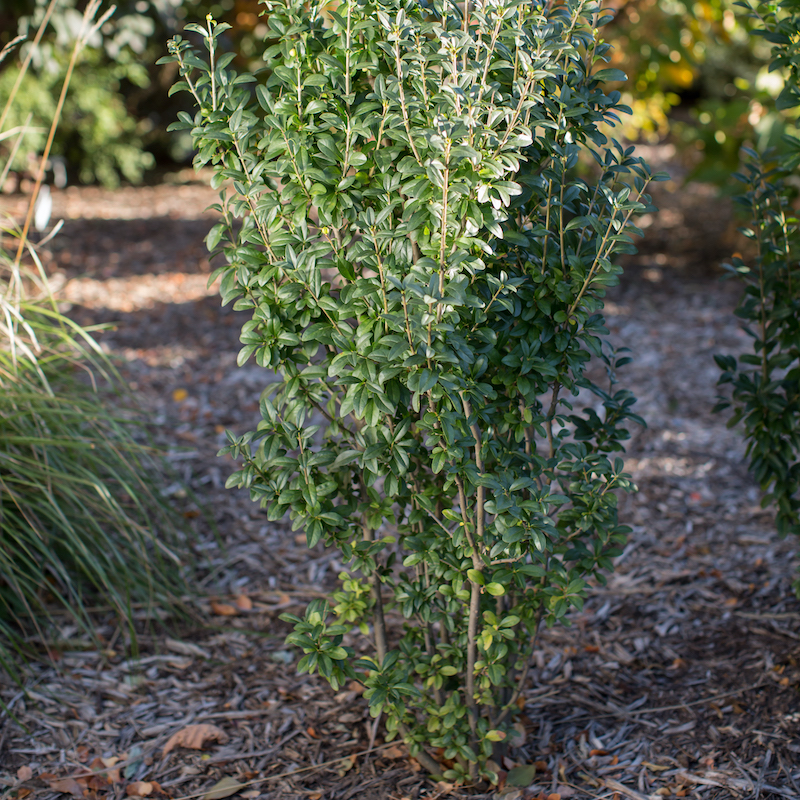Privets are excellent for creating a hedge or screen that can change the whole mood of your garden and yard. Fortunately, deer are not enticed to browse on the glossy, thick leaves or woody stems. When given a choice, deer seek plants with much more tender foliage and shoots. The dense growth of a Privet quickly regrows, and most shrubs recover well from “deer pruning”. Privet is usually so deer safe that it can be used as a living fence around gardens planted with the more traditional deer favorites of Hosta, Tulips, or Lillies. In areas of heavy deer concentration, Privet may be occasionally browsed when other food is scarce.

According to Rutgers University, this plant is Seldom Severely Damaged on their rating scale from Rarely Damaged to Frequently Severely Damaged. This indicates that Privet is a good choice for areas where deer browsing may be a problem.
| Rarely Damaged |
| Seldom Severely Damaged |
| Occasionally Severely Damaged |
| Frequently Severely Damaged |
Keeping Deer Away From Privet
Traditionally repellent sprays and granules have been used to keep deer from dining on prized plants. The sprays work for a short time before they need to be reapplied. Make sure to reapply after heavy rains or as the manufacturer recommends. Repellents are most effective in the early part of the growing season when the newest and most tender shoots emerge. As the growth matures and becomes more woody, there is less chance that deer will choose Privet for browsing.

Will Privets Come Back After Deer Eat Them?
Privets will regrow quickly from most deer damage. Deer tend to eat a little here and there as they are walking through a garden. Mature plants can cope with missing foliage or pruned-back stems. You can make clean cuts on damaged branches. Deer leave ragged edges that could weaken a plant and potentially attract diseases or pests. A clean cut will heal over quickly and keep the shrub growing strong. Privet blooms on the previous year's growth; if the hedge is browsed late in the season (e.g., fall or winter), it may lose one season of flowers.

Sources: Rutgers New Jersey Agricultural Experiment Station ‘Landscape Plants Rated by Deer Resistance’ 2018
 |
Author Robbin Small - Published 9-18-2022 |
